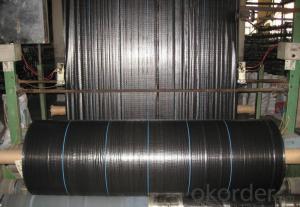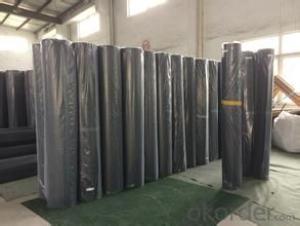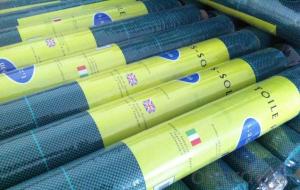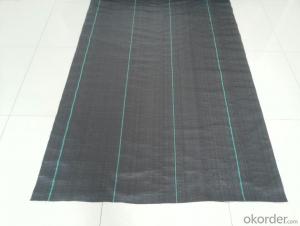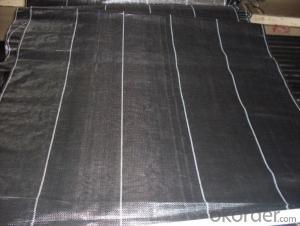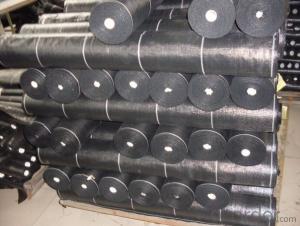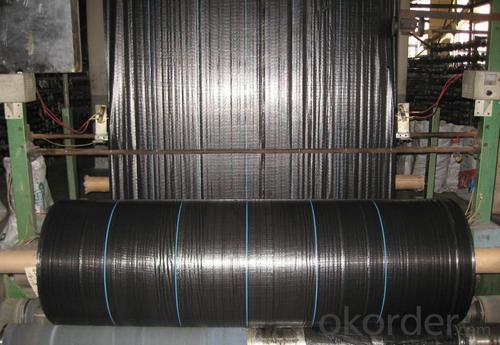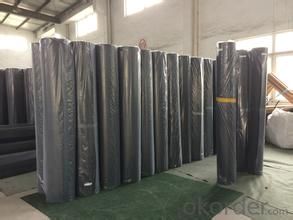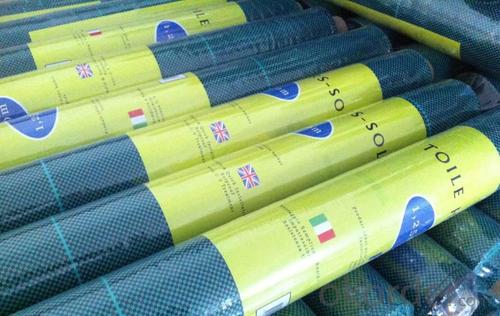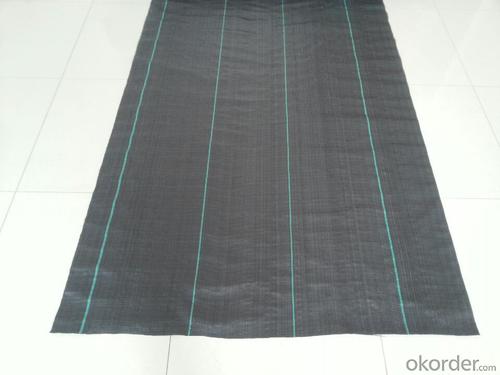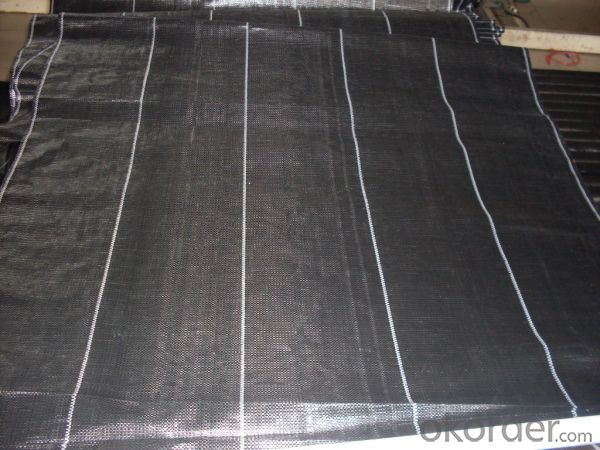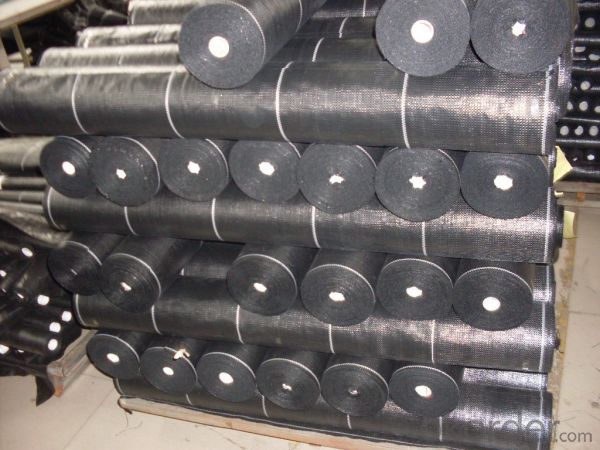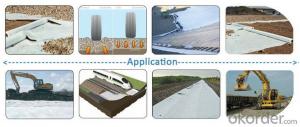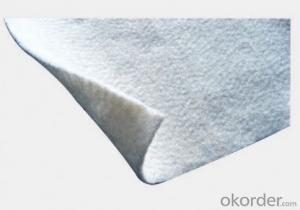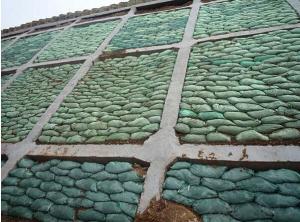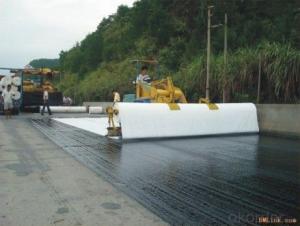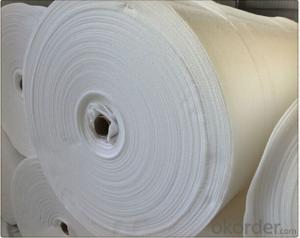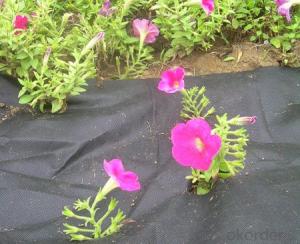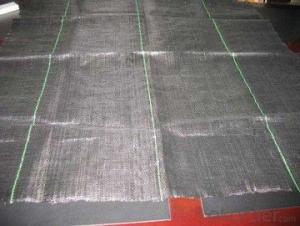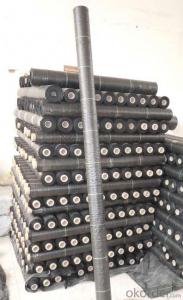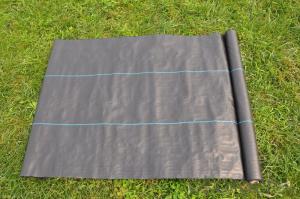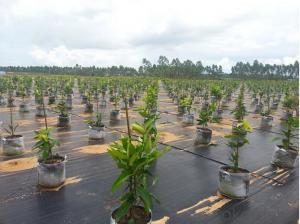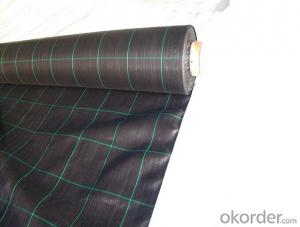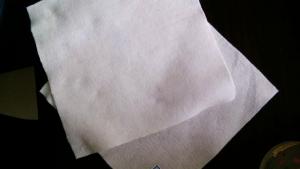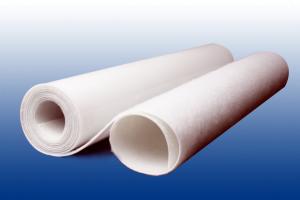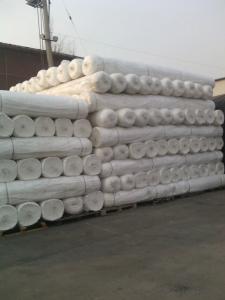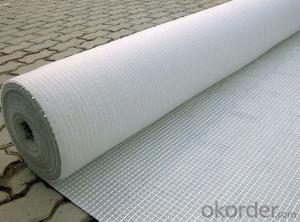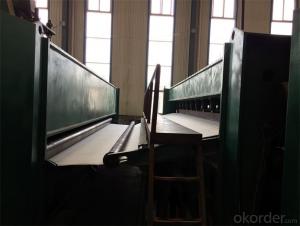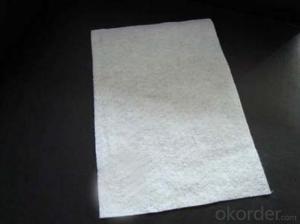Aritex Geotextile - Anti-UV PP Nonwoven Fabric for Landscape Cover Weed Mats
- Loading Port:
- Qingdao
- Payment Terms:
- TT OR LC
- Min Order Qty:
- 500 m²
- Supply Capability:
- 500000 m²/month
OKorder Service Pledge
OKorder Financial Service
You Might Also Like
Product Description
The weed control mat is made of environmentally friendly raw materials, pp woven fabric. It used to prevent the growth of weed, without the use of potentially dangerous chemical sprays or labor intensive hoeing. Once installed, weed mat will continue providing protection for years without maintenance.
They are permeable fabrics, which allow air, water and nutrients to pass through, and designed to block out the sun to reduce photosynthesis and stop weed growth.
Specification
ROPERTY | ASTM TEST METHOD | Minimum Average | Minimum Average |
Mass per unit Area | ASTM D-5261 | 3.0 oz/yd2 | 100 g/m2 |
Grab Tensile | ASTM D-4632 | 145 lbs | 660 N |
Grab Elongation | ASTM D-4632 | 15% | 15% |
Trapezoid Tear | ASTM D-4533 | 55 lbs | 245 N |
Water Flow Rate | ASTM D-4491 | 5 gal/min/ft2 | 203 L/min/m2 |
UV Resistance | ASTM D-4355 | 70% @ 500 hrs | 70% @ 500 hrs |
ROLL DIMENSIONS | |||
Roll Width | 0.9m (3’) | 1.8m (6') | 2.7m (9') |
Roll Length | 91.4m (300’) | ||
Roll Weight | 8kgs (17lbs) | 16kgs (34lbs) | 24kgs (52bs) |
1. Material: PP, virgin material or recycled material.
2. Weight: 63gsm-200gsm
3. Width: 30cm-500cm
4. Length: As per ur request.
5. Color: Black with green/white grid,or any color is
available.
6. Tearing strength: From 0.5 to 2.2kN
7. Mesh: 8*8,9*9,10*10, 11*11,12*12,13*13,14*14
8. UV stabilized: Up to your request.
9. Packing: In rolls (25m,50m,100m,200m,500m,
1000m,2000m) or pieces.
10. Quantity:12ton/20', 25ton/40'
11. Delivery time: 25-35 days.
12. Payment Term: L/C, T/T(30% of total amount deposit
and 70%).
13. MOQ:1x20'
Advantage:
1.Strong and Durable, anti-corruption,Inhibition of insect pest.
2. Air-ventilation , UV-protection and anti-weather.
3. Does not affect the growth of the crops,Weed-control and keep soil moist, ventilation.
4. Long serving time, which can give 5-8 year guarantee time.
5. Suitable for cultivating all kinds of plant.
Features
1. Weed suppressant and drainage control landscaping fabric
2. Easy to use, Environmentally friendly
3. Allows water, air and nutrients through, suppressing weeds without the use of chemicals
4. Reduces the level of watering required due to the slower rate of water evaporation
Application
1. Excellent Weed Control
2. Moisture, fertilizers, air reach plants to allow for healthy soil
3. Good water and air permeability
4. Exceptional toughness and strength
5. Durable, tear-resistant; won't rot or mildew
6. Lightweight, easy to install, follows natural ground contours
7. Ideal for use in landscaped beds, under decks and walkways.
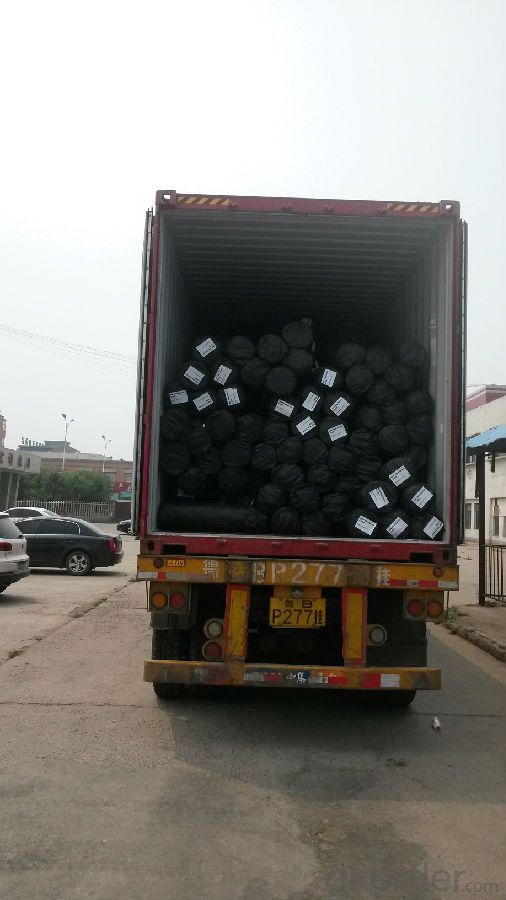
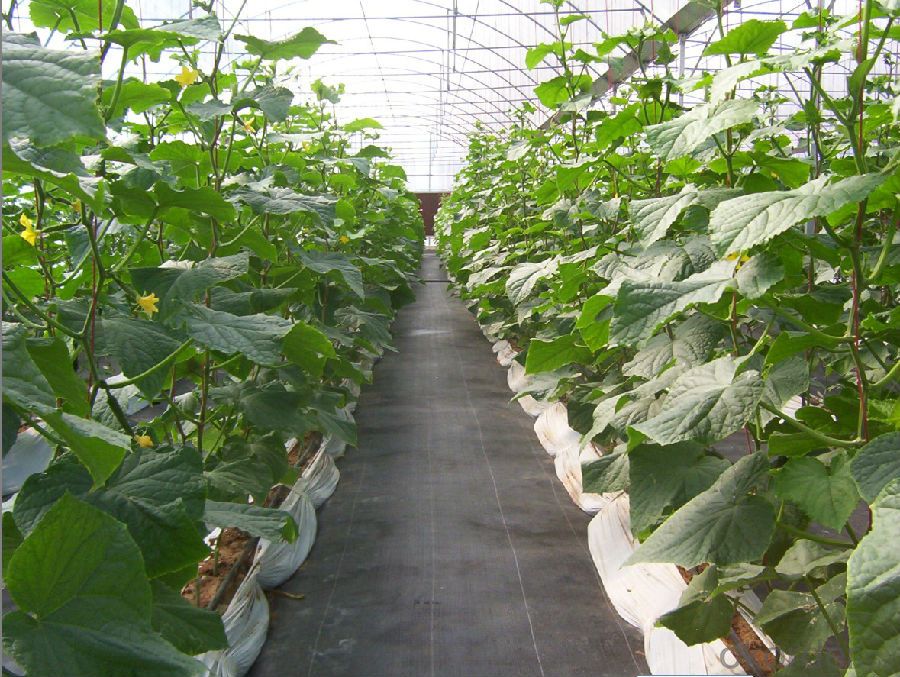
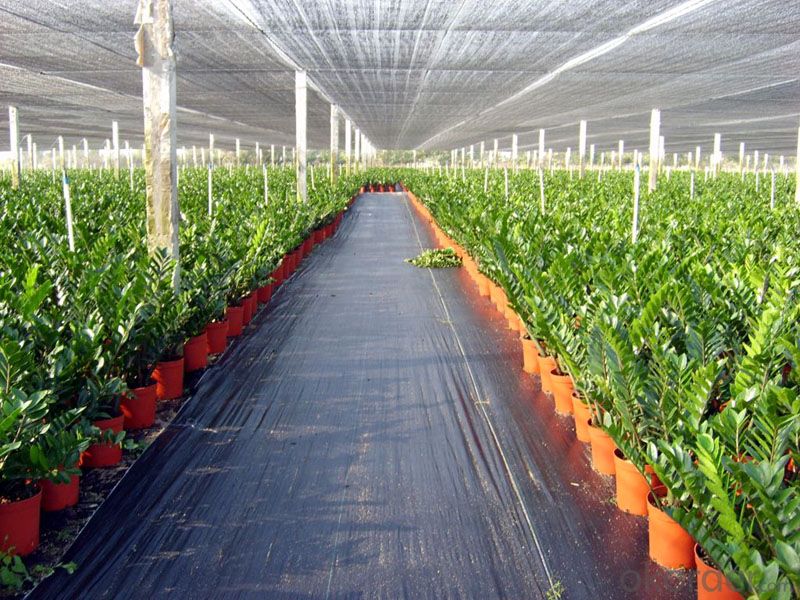
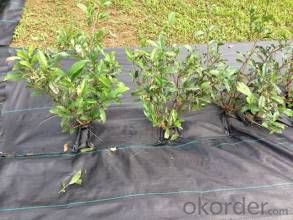
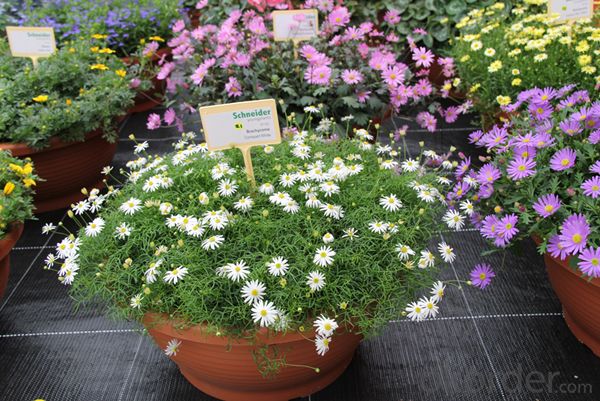
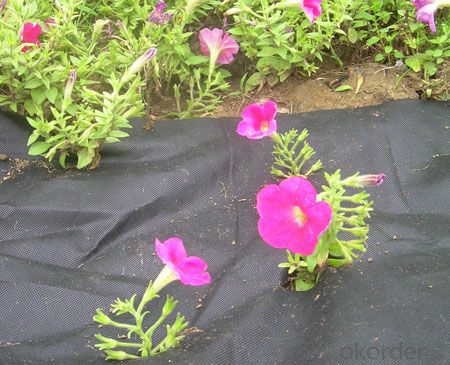
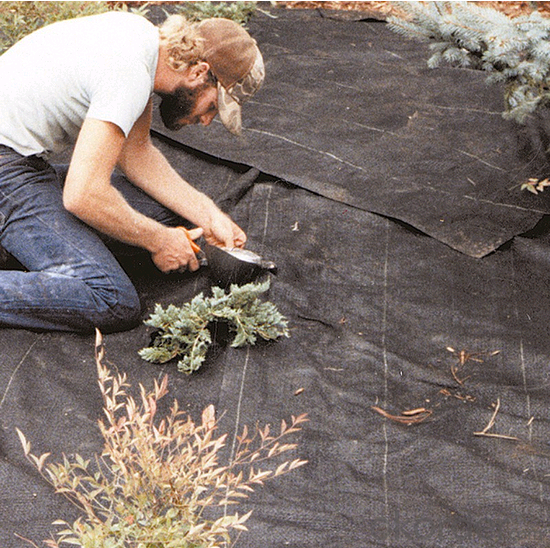
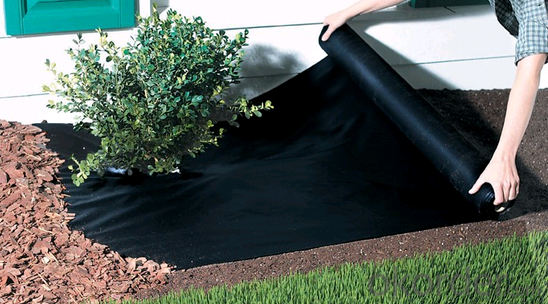
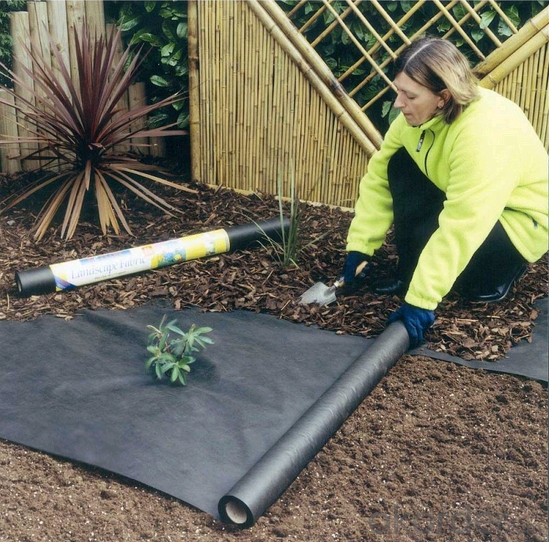
FAQ
1, Samples Policy
Samples are free, but the freight is on customers' charge
Samples will usually be sent out in one day.
2, Prices
As for the prices, we need you to provide us weight, color, width and usage so that
we can quote you best.
3, How to place an order?
Inquiry
Reply
Sample
Contract
Receiving deposit& production
Testing& Packing
Delivery
Receiving
- Q: Geotextile Model PP200-4-750 What does it mean?
- Is the geotextile 200g / ㎡? Geotextile is generally based on the weight per unit area to divide the specifications. Geotextile manufacturers Zhang Ming Chao for you to answer, I hope to help you.
- Q: What are the specifications for geotextiles in roadways?
- Geotextiles used in roadways should meet certain specifications to ensure their effectiveness. These specifications typically include factors such as tensile strength, puncture resistance, filtration capability, and elongation properties. Additionally, the geotextiles should have appropriate thickness, weight, and permeability to allow for proper drainage and filtration of water. The specifications may vary based on the specific requirements of the road project, but overall, geotextiles in roadways need to be durable, efficient, and capable of enhancing the overall performance and longevity of the road.
- Q: What are the factors to consider when designing geotextile-reinforced structures?
- When designing geotextile-reinforced structures, there are several factors that need to be considered. Firstly, the type and properties of the geotextile being used must be evaluated, including its strength, durability, and permeability. The soil conditions at the site, such as its composition, stability, and drainage characteristics, also play a significant role. The design should take into account the anticipated loads and stresses that the structure will be subjected to, as well as any potential environmental factors such as rainfall or seismic activity. Additionally, construction considerations, including the installation process, available equipment, and cost-effectiveness, should be taken into account. Overall, a comprehensive understanding of the site conditions, geotextile properties, and design requirements is crucial to ensure the successful and sustainable design of geotextile-reinforced structures.
- Q: What are the challenges associated with geotextile installation?
- One of the main challenges associated with geotextile installation is ensuring proper alignment and placement of the material. Geotextiles need to be installed in a specific manner to effectively perform their intended functions, such as erosion control or soil stabilization. Achieving the right alignment can be difficult, especially in areas with uneven terrain or limited access. Another challenge is securing the geotextile in place. Since these materials are often lightweight and flexible, they can easily shift or become displaced during installation. Proper anchoring techniques, such as using staples or pins, are necessary to prevent movement and maintain the integrity of the installation. In addition, the type and condition of the underlying soil can pose challenges. Geotextiles require a stable and well-compacted base for optimal performance. If the soil is soft or unstable, additional measures such as soil stabilization techniques or geogrids may be necessary to ensure proper installation. Lastly, weather conditions can also impact geotextile installation. Wind, rain, or extreme temperatures can make the process more difficult and may require additional precautions or delays. Proper planning and coordination with weather forecasts are essential to mitigate these challenges and ensure a successful geotextile installation.
- Q: Geotextile with ordinary non-woven like not? The
- Many kinds of non-woven fabrics can do geotextiles, such as sewing non-woven, acupuncture non-woven fabrics.
- Q: The outside of the blind tube is not to be with the geotextile 1 effect will be better?
- Plastic blind ditch is a new geosynthetics, is composed of plastic core wrapped outside the filter composition. At present the plastic core has several different cross-sectional shape rectangular, hollow rectangular, circular and hollow circular species structure of the plastic blind ditch products. Pass the water to see the original tie & gt; & gt;
- Q: Today someone told me about a boyfriend, said to be geotextile. I wonder, geotextile cloth is what cloth? Is there there? Why is it used More
- Geotextile geotextile, also known as geotextile, it is made of synthetic fibers through the needle or woven from the permeability of geosynthetics. Finished cloth for the cloth, the general width of 4-6 meters, the length of 50-100 meters. Geotextile is divided into a woven geotextile and non-woven geotextile. Geotextile has excellent filtration, isolation, reinforcement protection, high tensile strength, good permeability, high temperature, anti-freeze, anti-aging, corrosion resistance. Divided into: non-woven geotextile, a textile geotextile (reinforced geotextile), warp knitted geotextile with demand can contact: Fang Lingyan Tel:
- Q: How are geotextiles affected by UV exposure?
- Geotextiles are usually made of synthetic materials such as polypropylene or polyester, which can be negatively affected by prolonged exposure to UV radiation. UV exposure can cause degradation and weakening of the fibers, leading to reduced tensile strength and overall performance of geotextiles. To mitigate this, manufacturers often add UV stabilizers to enhance their resistance to UV radiation, thereby extending their lifespan and ensuring their effectiveness in various geotechnical applications.
- Q: Are geotextiles suitable for use in chemical containment facilities?
- Yes, geotextiles are suitable for use in chemical containment facilities. Geotextiles are designed to provide excellent filtration and separation properties, making them effective in preventing the migration of contaminants or chemicals. They are durable, resistant to chemical degradation, and can be tailored to meet specific site requirements. Additionally, geotextiles offer cost-effective solutions for lining systems in chemical containment facilities, ensuring environmental protection and long-term stability.
- Q: Geotextile construction inspection batch ye do?
- Willing to smash the acceptance of smashing acceptance in vain
Send your message to us
Aritex Geotextile - Anti-UV PP Nonwoven Fabric for Landscape Cover Weed Mats
- Loading Port:
- Qingdao
- Payment Terms:
- TT OR LC
- Min Order Qty:
- 500 m²
- Supply Capability:
- 500000 m²/month
OKorder Service Pledge
OKorder Financial Service
Similar products
Hot products
Hot Searches
Related keywords
